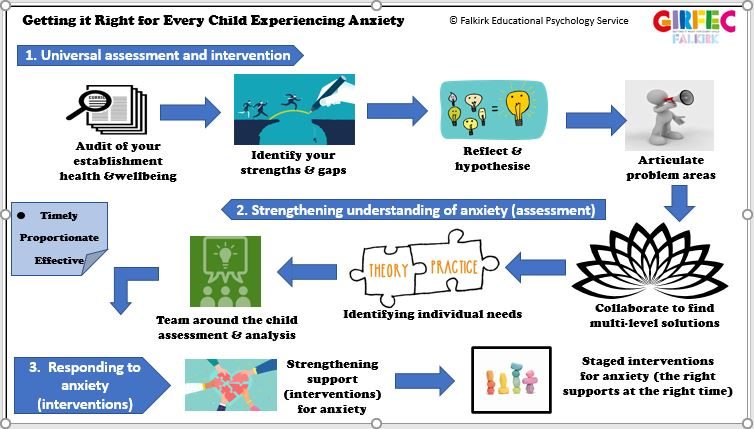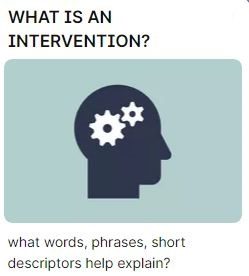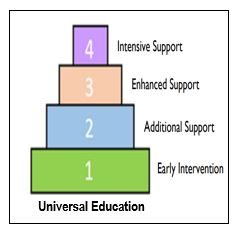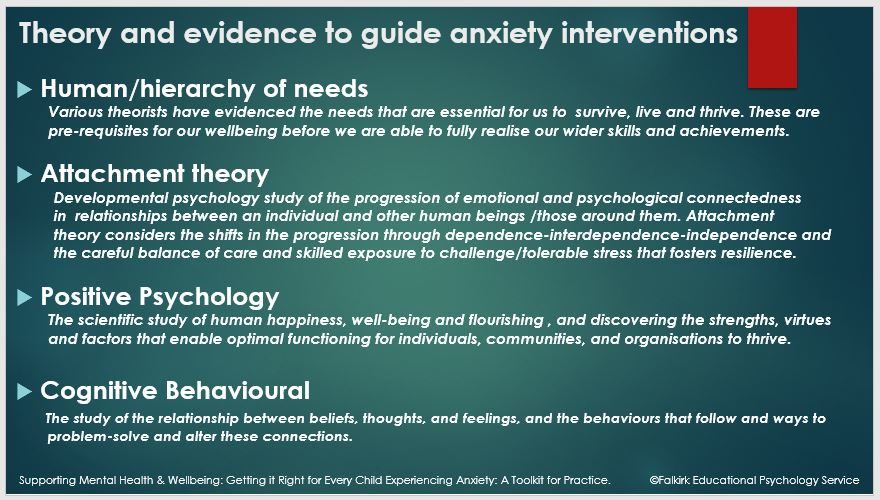Strengthening support for anxiety (interventions)
Having carried out a robust assessment to find out what is getting in the way of the child/young person’s wellbeing, there are some key principles of a successful intervention for you to consider:
- In-house solutions where possible. You already have a wealth of universal tools at your disposal, which may be appropriate for using in a more targeted way. Research reviews have shown the effectiveness of interventions at home and in school, in reducing anxiety in children/young people.
- Child/young person’s age and stage. What interventions will be most suited to the needs of this particular individual?
- Child/young person’s Additional Support Needs. Knowledge of your learner’s needs will help you to make decisions about what differentiation may be required.
- A planned and methodical approach. Doing too much at the one time could be, at best unsuccessful and at worst, potentially have a negative impact on the child/young person.
- The principle of least intrusive, most effective. You will want to consider the impact on the child/young person, of being singled out for an individual intervention and what meaning this will hold for them.
This journey map shows the recommended route from assessment through to intervention using the Anxiety Toolkit.


- action towards change
- improvement
- based on assessment
- using data
- child-centred
- working together to understand needs
- regular evaluation
WHAT DO WE NEED TO THINK ABOUT TO MAKE INTERVENTIONS SUCCESSFUL?

- working as a team, consistency of approach
- planning
- everyone sharing the aim (desired outcome(s))
- ease of implementation
- access to necessary resources and people to support
- measurable
- right course of action at the right time
In order to respond well for all learners and have high quality interventions for those learners experiencing anxiety, we need to be always thinking about  Environments created around our learners
Environments created around our learners
Interactions with our learners Experiences provided for our learners

Practitioners should be familiar with Falkirk Council Staged Intervention Framework
Additional Support (as defined in The ASL Act) includes: approaches to learning and teaching support from people provision of resources/programmes
Theories and evidence to guide anxiety interventions

Webinar
Responding to emotionally-based school avoidance webinar took place on 08 December 2021. The webinar and resources are available by signing up here. These include information from Knightsmith, P. (2022): Emotionally-based school avoidance: Five tips. Vulnerable students: The four domains of safety

